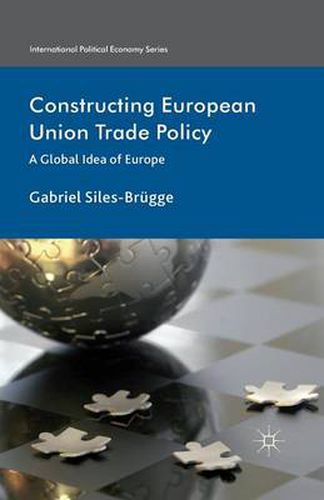Readings Newsletter
Become a Readings Member to make your shopping experience even easier.
Sign in or sign up for free!
You’re not far away from qualifying for FREE standard shipping within Australia
You’ve qualified for FREE standard shipping within Australia
The cart is loading…






This title is printed to order. This book may have been self-published. If so, we cannot guarantee the quality of the content. In the main most books will have gone through the editing process however some may not. We therefore suggest that you be aware of this before ordering this book. If in doubt check either the author or publisher’s details as we are unable to accept any returns unless they are faulty. Please contact us if you have any questions.
With the stagnation of the Doha Round of multilateral talks, trade liberalisation is increasingly undertaken through free trade agreements. Gabriel Siles-Brugge examines the EU’s decision following the 2006 ‘Global Europe’ strategy to negotiate such agreements with emerging economies. Eschewing the purely materialist explanations prominent in the field, he develops a novel constructivist argument to highlight the role of language and ideas in shaping EU trade policy. Drawing on extensive interviews and documentary analysis, Siles-Brugge shows how EU trade policymakers have privileged the interests of exporters to the detriment of import-competing groups, creating an ideational imperative for market-opening. Even during the on-going economic crisis the overriding mantra has been that the EU’s future well-being depends on its ability to compete in global markets. The increasingly neoliberal orientation of EU trade policy has also had important consequences for its economic diplomacy with the developing economies of the African, Caribbean and Pacific group of states.
$9.00 standard shipping within Australia
FREE standard shipping within Australia for orders over $100.00
Express & International shipping calculated at checkout
This title is printed to order. This book may have been self-published. If so, we cannot guarantee the quality of the content. In the main most books will have gone through the editing process however some may not. We therefore suggest that you be aware of this before ordering this book. If in doubt check either the author or publisher’s details as we are unable to accept any returns unless they are faulty. Please contact us if you have any questions.
With the stagnation of the Doha Round of multilateral talks, trade liberalisation is increasingly undertaken through free trade agreements. Gabriel Siles-Brugge examines the EU’s decision following the 2006 ‘Global Europe’ strategy to negotiate such agreements with emerging economies. Eschewing the purely materialist explanations prominent in the field, he develops a novel constructivist argument to highlight the role of language and ideas in shaping EU trade policy. Drawing on extensive interviews and documentary analysis, Siles-Brugge shows how EU trade policymakers have privileged the interests of exporters to the detriment of import-competing groups, creating an ideational imperative for market-opening. Even during the on-going economic crisis the overriding mantra has been that the EU’s future well-being depends on its ability to compete in global markets. The increasingly neoliberal orientation of EU trade policy has also had important consequences for its economic diplomacy with the developing economies of the African, Caribbean and Pacific group of states.